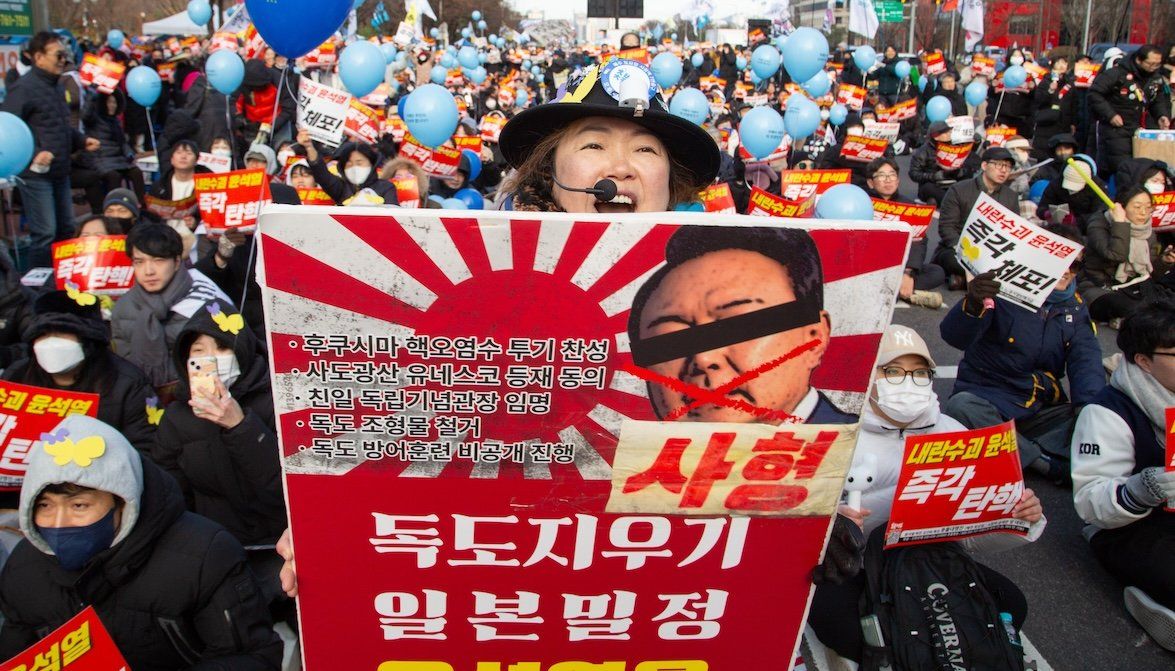We imagine Supreme Leader Kim Jong Un is enjoying the scent of chaos emanating from his southern border. Last week, you’ll recall, President Yoon Suk Yeol took a page from Kim’s playbook and declared martial law in South Korea. That ended quickly, but the instability continues.
Deeply unpopular and hounded by scandals, Yoon may have thought he could take out his political enemies by suspending military and political activities, but steadfast legislators quickly gathered to vote and end the mutiny. Politicians then moved to impeach Yoon, but he survived when fellow conservatives in his People Power Party walked out before Saturday’s impeachment vote. While over 100,000 people protested Yoon’s leadership outside the legislature, only 195 legislators supported impeachment, just shy of the 200 votes needed for it to pass.
Afterward, Yoon apologized and promised not to declare martial law again, but that doesn’t mean all is forgiven. Yoon still faces legal trouble – prosecutors have opened a criminal case against him – and the PPP has reportedly officialized his “early resignation.” PPP leader Han Dong-hoon said Yoon has been effectively sidelined from his duties and that “the prime minister will consult with the party to manage state affairs.” Yoon's former defense minister has also been arrested.
Korean politics have entered “truly uncharted waters,” says Eurasia Group expert Jeremy Chan. “Yoon is politically radioactive, with no member of his own party defending his decision to impose martial law,” which means his “presidency is effectively over, even if he manages to stay in office for a few more weeks.”
Pressure will build on Yoon and the party for him to offer an “orderly resignation,” Chan explains. If he refuses, “the odds that he is impeached by the National Assembly will grow each week,” and the pressure will be accompanied by more and more public protests and strikes.
What about regional security? For now, Chan thinks Kim will keep his head low. “Kim’s risk appetite will be low in the short term given that a more accommodative administration is likely to follow in South Korea once Yoon is gone and elections are held.”
But what if Yoon holds on for months amid political paralysis? Then, Chan says, “Kim could see this as a once-in-a-generation opportunity to strike amid a leadership vacuum in South Korea.”